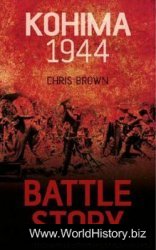Nominalism does not deserve to be reckoned as part of the Aristotelian tradition, Heymeric argued, because its defenders deny the existence of real universals outside the human mind. According to Aristotle, the objects of scientific knowledge are necessary and universal.
Therefore, if universals had only a mental existence, then the sciences would not deal with reality but only with human thought, which would be absurd. For this reason, Heymeric concluded, Nominalists can only do logic, which is indeed concerned with human concepts, but none of the sciences dealing with things outside the human mind, such as physics and metaphysics. As the main representatives of Nominalism, he mentioned William of Ockham, John Buridan, and Marsilius of Inghen, and considered the first to be the inaugurator of Nominalism, who out of jealousy had distorted Aristotelianism and invented an opposing school of his own.
This criticism of Nominalism, which in a less vigorous way was also present in the writings of Johannes de Nova Domo, had enormous impact. Both the argument that Nominalists are unable to engage in physics and metaphysics, as well as the verdict that Nominalism does not belong to the Aristotelian tradition, were repeated time and again until well into the sixteenth century. As a consequence, Nominalist authors were excluded from academic debates, which had an immediate practical effect. As a rule, in the commentaries on Aristotle written by Albertists, Nominalist authors were not mentioned and their positions not discussed. The most important con-versants in their debates were the Thomists and, to a lesser extent, the Scotists. At Cologne, the Nominalists were also ignored by the Thomists, who, as far as this matter was concerned, shared the critical view of the Albertists.
From treatises produced within the faculties of theology, a more or less similar picture emerges. Here Albertists and Thomists also made a common stand against Nominalism. Exemplary is a disputation held at the Theological Faculty, at the University of Cologne in 1480. Here the Nominalist Johannes Rype de Alen was attacked by representatives of both schools, but most powerfully by the Albertist Gerardus de Harderwijck, who accused him of not following the teachings of Aristotle when discussing the relations between the three divine persons. Johannes Rype de Alen identified these relations with the divine persons themselves, as had Ockham before him, and to whom he also openly referred. This caused Gerardus to object that Johannes denied any real distinction between the categories of substance and relation and that he thus ignored the principles of Aristotle. Significantly, for Albertists, the principles of Aristotelian philosophy also count when discussing the mysteries of Christian Faith, such as the Trinity and the Incarnation.
Not only in Cologne but also elsewhere the relationship between Aristotelian philosophy and Christian Faith was a matter of much debate. For many Albertists, Nominalism posed a serious danger to the adequate understanding of Christian Faith. They were supported in this perception by a large number of Thomists and Scotists. For this and other reasons, at the Universities of Heidelberg, Tiibingen, Freiburg, and Ingolstadt, the arts faculties became divided into two different camps: that of the via moderna, defended by Nominalists, and that of the via antiqua, supported by Albertists, Thomists and Sco-tists, each with their own reading of Aristotle and their own exams. In this way, the supporters of the via antiqua tried to avoid that students with a mistaken understanding of Aristotle would cause troubles in theology. As a result, Albertism, together with Thomism and Scotism, became one of the principal movements within the via antiqua.
The consequences of this development, which took place in the second half of the fifteenth century, cannot be underestimated. At one and the same university in the same year, the same texts of Aristotle were read by two different masters from two different perspectives, that of the via antiqua and that of the via moderna. In the case of the via antiqua, the works of Albert the Great, Thomas Aquinas and John Duns Scotus were used, and in that of the via moderna, those of William of Ockham, John Buridan and Marsilius of Inghen. Against the background of this institutional separation it becomes clear why, in actual fact, the doctrinal profile of Albertism established itself largely through debates with Thomism and Scotism and not so much with Nominalism.




 World History
World History









